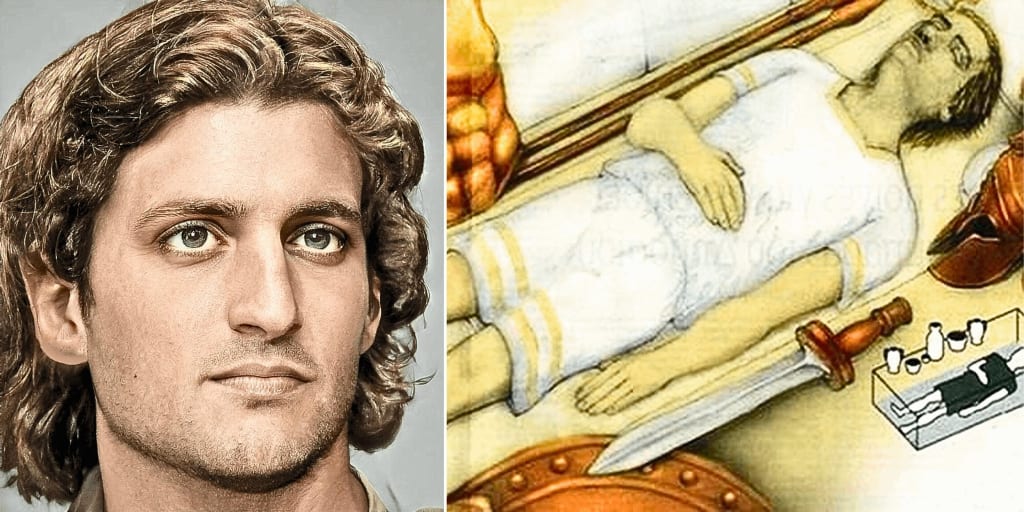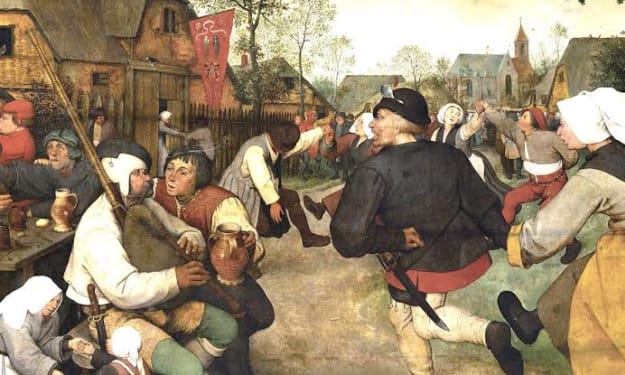The Fact About Alexander The Great Burial
The circumstance around his death

When Alexander the Great's body did not decompose six days after his death, ancient Greeks were in awe. This made loyal followers believe he was a god. But he was paralyzed by a rare brain disorder unknown at that time, which caused him to suffer terrible death for a week. He was buried alive.
Alexander the Great, the legendary conqueror whose empire stretched from Greece to Egypt and beyond, met a fate as enigmatic as his life. Among the countless tales surrounding his demise, one of the most enduring is the belief that his body remained miraculously preserved for days after his death, leading some to regard him as divine. However, a closer examination reveals a more complex and nuanced reality, one shrouded in mystery and speculation.
The Legend:
According to ancient accounts, Alexander the Great's body did not decompose for six days following his death in 323 BCE. This remarkable preservation, coupled with his unparalleled conquests and charisma, fueled the belief among his followers that he was a god incarnate. The notion of his divinity was further reinforced by the circumstances surrounding his burial, which were reportedly accompanied by divine signs and omens.
The Reality:
While the legend of Alexander's incorruptible body persists, modern scholars approach the story with skepticism. The phenomenon of delayed decomposition, known as adipocere formation, can occur under certain environmental conditions, such as high humidity and low temperatures, without necessitating divine intervention. Additionally, the precise details of Alexander's death and the events following it remain subject to historical interpretation and debate.
The Mystery Deepens:
One theory posits that Alexander succumbed to a rare and previously unknown brain disorder, which paralyzed him and caused his body to remain in a state of suspended animation after death. This hypothesis, while intriguing, lacks conclusive evidence and is largely speculative. Moreover, the notion that Alexander was buried alive due to his condition remains a contentious assertion, unsupported by contemporary accounts or archaeological findings.
Historical Context:
To understand the complexities surrounding Alexander's death, it is essential to consider the historical context in which he lived. In an era marked by superstition, divine attributions, and political intrigue, the lines between fact and myth often blurred. The reverence accorded to Alexander by his contemporaries, combined with the propaganda efforts of his successors, contributed to the embellishment of his legacy and the proliferation of fantastical narratives.
Legacy and Interpretation:
The enduring fascination with Alexander the Great's life and death reflects the enduring allure of ancient history and the human impulse to imbue extraordinary figures with mythic significance. Whether viewed as a visionary conqueror, a tragic hero, or a divine emissary, Alexander's legacy continues to captivate scholars and enthusiasts alike, inspiring countless works of art, literature, and scholarship.
Alexander Key Facts
Despite the abundance of theories surrounding Alexander the Great's death, there are several key facts that provide a clearer understanding of the events surrounding his demise.
Firstly, it is widely accepted that Alexander fell ill suddenly after a night of heavy drinking in Babylon. The nature of his illness remains a subject of speculation, with theories ranging from infectious diseases to poisoning. However, the exact cause of his death remains uncertain, as ancient accounts offer conflicting narratives and lack conclusive evidence.
Secondly, Alexander's body was embalmed and transported to Egypt, where it was interred in a lavish mausoleum in Alexandria. The construction of this monument, known as the Soma, or "body," was a testament to the reverence and adulation accorded to Alexander by his successors and admirers.
Thirdly, the cult of Alexander the Great persisted long after his death, with various Hellenistic kings and rulers seeking to associate themselves with his legacy. The city of Alexandria, founded by Alexander himself, became a center of learning and culture in the ancient world, serving as a beacon of Greek civilization in the heart of Egypt.
Fourthly, the myth of Alexander's divine status continued to evolve in the centuries following his death, with legends of his immortality and apotheosis proliferating throughout the Mediterranean world. From Roman emperors to medieval European monarchs, successive generations sought to emulate Alexander's exploits and emulate his legacy.
Conclusion:
In the tapestry of ancient history, Alexander the Great stands as a colossus, his life and death a testament to the enduring power of human ambition, ingenuity, and imagination. While the precise circumstances of his demise may never be fully known, the legacy of this remarkable figure continues to inspire awe and admiration, reminding us of the boundless potential of the human spirit.
From the conquests of his youth to the mysteries of his death, Alexander's story resonates across the ages, inviting us to ponder the nature of greatness, the fragility of mortality, and the enduring quest for immortality. Whether viewed as a mortal man or a divine hero, Alexander the Great remains an indelible figure in the annals of history, his legacy etched into the fabric of civilization for all time.
In the book of ancient history, few figures loom as large or command as much fascination as Alexander the Great. His conquests reshaped the known world, his legacy endured through the ages, and his death remains one of the greatest mysteries of antiquity. Whether regarded as a mortal man or a divine hero, Alexander's story continues to captivate and inspire, reminding us of the enduring power of human ambition, ingenuity, and imagination.






Comments (1)
Finally he found the truth.